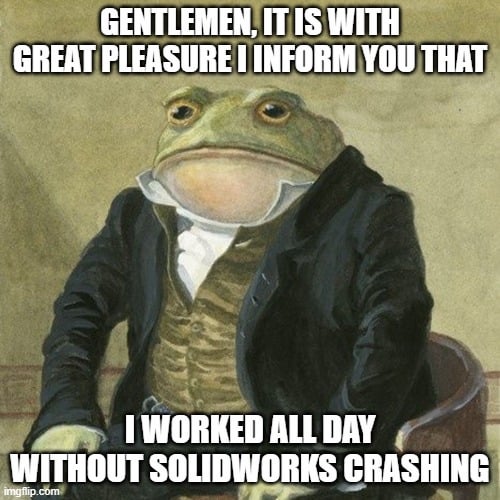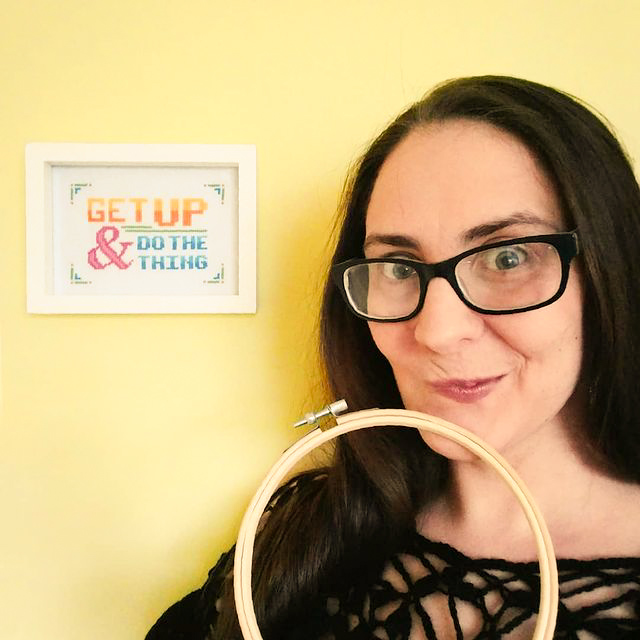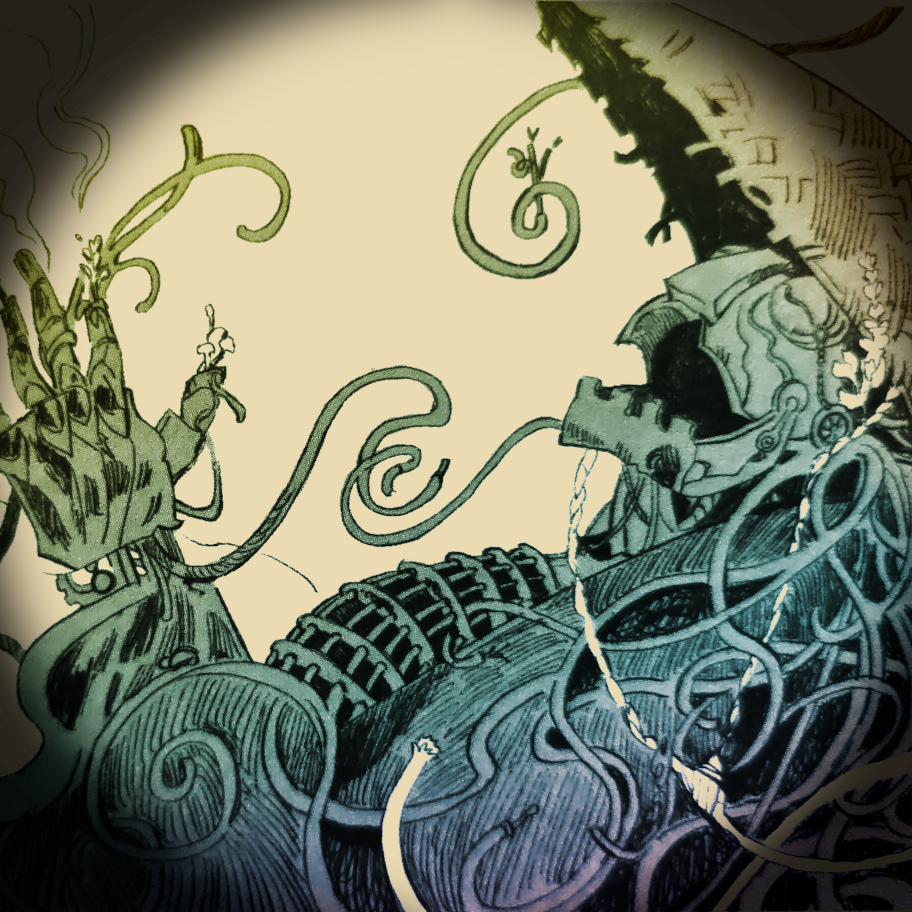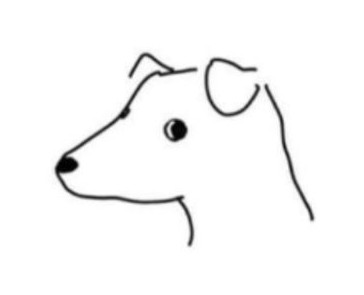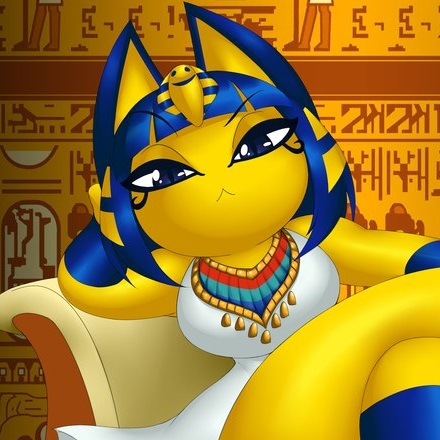Like the title says, I’ve been painting figures with cheap dollar store craft paints (and a few other cheap materials) rather than “proper” hobby paints. Gauging if there is interest among people who might want to try mini painting but are intimidated by price or the idea of complexity.
These minis were printed on a lower quality printer, then primed with some kind of mystery spray paint during bad weather, then given to me. So this would be a guide in making tabletop standard baseline minis, and people following it would probably have better results than me but I’d do a starter guide if there is enough interest for me to take pictures and notes.
I for one believe splurging for, say, a Vallejo basic paints set is making your life considerably easier as the consistency of any given cheap craft paint pot is a lottery, but yeah, we do need much more minipainting over here!
I do primarily paint with Vallejo, but wanted to show a beginner budget friendly option.
As you probably know about craft paints they tend to be very thick, however if you thin them with water the large pigments separate in the thinned paint making it opaque in some areas and goopy in others.
The secret ingredient is Flow Aid. A single drop or two into a dry palette’s worth of craft paint will make it flow without separating. Over a white prime, this makes usable paint that is easy to work with.
There’s more optional stuff like making your own washes which I do for both budget and quality reasons, some colors of which can be used to stain white minis in a similar result to contrast paint.
That’s awesome. I buy cheap acrylic paint on Amazon and print my own figures to paint but they never look that good. Well done.
These are great quality! I’d love to hear some details about your process, especially thinning paints.
Yes! What a fun idea.
Absolutely! I love watching painting tutorials but let’s be honest most of them are like “step 1: buy these expensive branded paints, my super special brush set, and an airbrush”
I would be interested. I have Vallejo paints now, but I would have felt more comfortable dipping my toe in the water if I could start with cheaper paints. Or perhaps another direction, how expensive is it to you the cheap paint? Is it the same work as nicer paint? As a beginner painter, what do I really get by buying the expensive paints?
I think a guide on using the dollar store stuff could help that conversation.
P.a are those 3D breed minis? They look like March to Hell - Rome.
I have many Vallejo paints, as well as P3, Tamiya, AK and a few other specialty brands. They are better paints. You can do details, as well as blending they you can’t really accomplish with craft paints. There is a lot of precision value for hobby paints. Except for washes, I make those out of artists inks myself and they are both better and cheaper.
Craft paints do have use in my regular rotation for things like terrain , and as I want to demonstrate, can make minis at least tabletop quality. No blending, no complex patterns- but putting a lot of minis, uniformly completed on a table is possible.
The craft paints are $1 a tube (maybe a little more for metallic colors) and what you’d find at WalMart or a dollar store.
These are hand-me-down 3D minis. My understanding is they were 10mm sculpts printed at 27mm scale which is why they are so chunky and dwarven looking.
This is really cool! I think showing how you’ve been able to achieve these results with non-mini paints would be really interesting to discover! I’m also always looking for tips and I need as much as I can get.
I have very slowly getting into mini painting. I was gifted a bunch of reaper paints and bought a few more to round out the color spectrum! I’m as artistic as a brick and have zero skill so I’m trying to approach it technically. I have too much going on so I haven’t done much painting in a while but I keep coming back to it.
The timing on this post is amazing! I’ve been 3D printing minis for a while, but so far I’ve not been painting them as I’m only marginally artistically inclined, and I didn’t want to “mess them up.”
But as of this week I just bought into Malifaux to play at my local game shop, and those I want to paint. I decided to practice on some of my 3D printed minis since I can make more if I mess them up real bad, and just bought some paint. I got primary colors, a saturated green (for convenience), a middling flesh tone, two metallics, and two washes (all from Army Painter because that’s what my local store sells). Hot damn it was expensive! I’m glad I set myself a budget when I was choosing which crew to buy, because I did not realize how much I’d be dropping on paint. Thankfully I did think to pick up primer and clear coat from the hardware store, which probably saved me like $20.
So yeah, I’d be interested in a guide to getting into miniature painting without breaking the bank! Especially interested in replicating effects like speed paints / contrast paints, which seem to be more than just a simple wash as far as I can tell.
My thoughts on contrast paints are complicated. The TLDR is that they are sold as a shortcut, which I think is misleading and causing a lot of frustration for new painters. Contrast paints are one possible option that should be used by a painter who knows the fundamentals. For as expensive as contrast paint is, you really should know what you’re doing and have a good idea why you chose it over normal paint for a certain job.
I have a few ink washes that I made which act similar to contrast paint. I’ll show them off when I make the guide. No magic in contrast, it’s all just color pigments being moved around on a surface.
While I mostly agree with you, I do think that contrast paints are a great shortcut. However, not for new painters necessarily. But once you get the hang of painting a bit, they can be fantastic for speedpainting.
Washes, however, are talent in a bottle for everyone starting from the very first mini they paint. It’s amazing how they can turn your mini from “argh this is a mess” to “this looks amazing!” so easily.
Contrasts are a tool best used as an informed option rather than a replacement for somebody who is intimidated by painting. I think the marketing around them to new painters is more of a problem than the product itself.
Washes, similarly have their place. They are great for some purposes but can easily end up being counter productive when all the person applying them knows about them is “wash = good”.
Tools have their place and I want to talk more about expanding options for people and showing alternatives and different methods for different situations rather than say something is always good or always bad for a mini.
Sure, nothing is always good or bad. Of course. That’s also not what I was saying? At least, what I meant was, washes are great for someone who has no idea what they’re doing yet. Because without having learned any skills, a lot of things you try don’t work out. Washes, however, even when applied without skill, generally do work out great and massively improve the beginner’s paint job. Obviously, not always, but it’s a very very safe bet.
And then, if you do know what you’re doing, you might use loads of different techniques. But washes are still great to have and can provide great effects when the mini calls for it. But since we were talking about beginners taking up painting for the first time, I figured a nuanced discussion for experienced painters was not what we were looking for. :)
I got the impression from the idea of liquid talent, and it called back the many times I’d see applying brown wash as a suggestion for new painters, with very little detail on how and where exactly to apply it. Not always the worst idea, but I think elaboration on when and how to use wash is useful. Introducing people to wash is great, I just don’t want to let that introduction be the last guidance on the matter.
Definitely, it something I want to get into. Having played ttrpg mainly online, I’d like to start playing round table tbh
I love using those craft paints on my bases so I don’t have to worry about using an entire pot of my good paints to finish a squad’s bases!
Yes even on my proper hobby painted minis I almost always use craft paint to do the bases.
XPS solid wall insulation from a hardware store. One sheet has lasted for many projects. This one is glued together offcuts sculpted with a hot wire cutter.,
I managed to win a small 3D printer in a contest and I have been wanting to get into making minis for d&d, I have no knowledge or experience of painting minis and a guide would be nice
Yes! That would be awesome!
This looks really good, especially considering it’s dollar store paint!
Does anyone know of a mini painting community? I’m new to Lemmy and still finding my bearings but I’d love to see more mini painting content.




